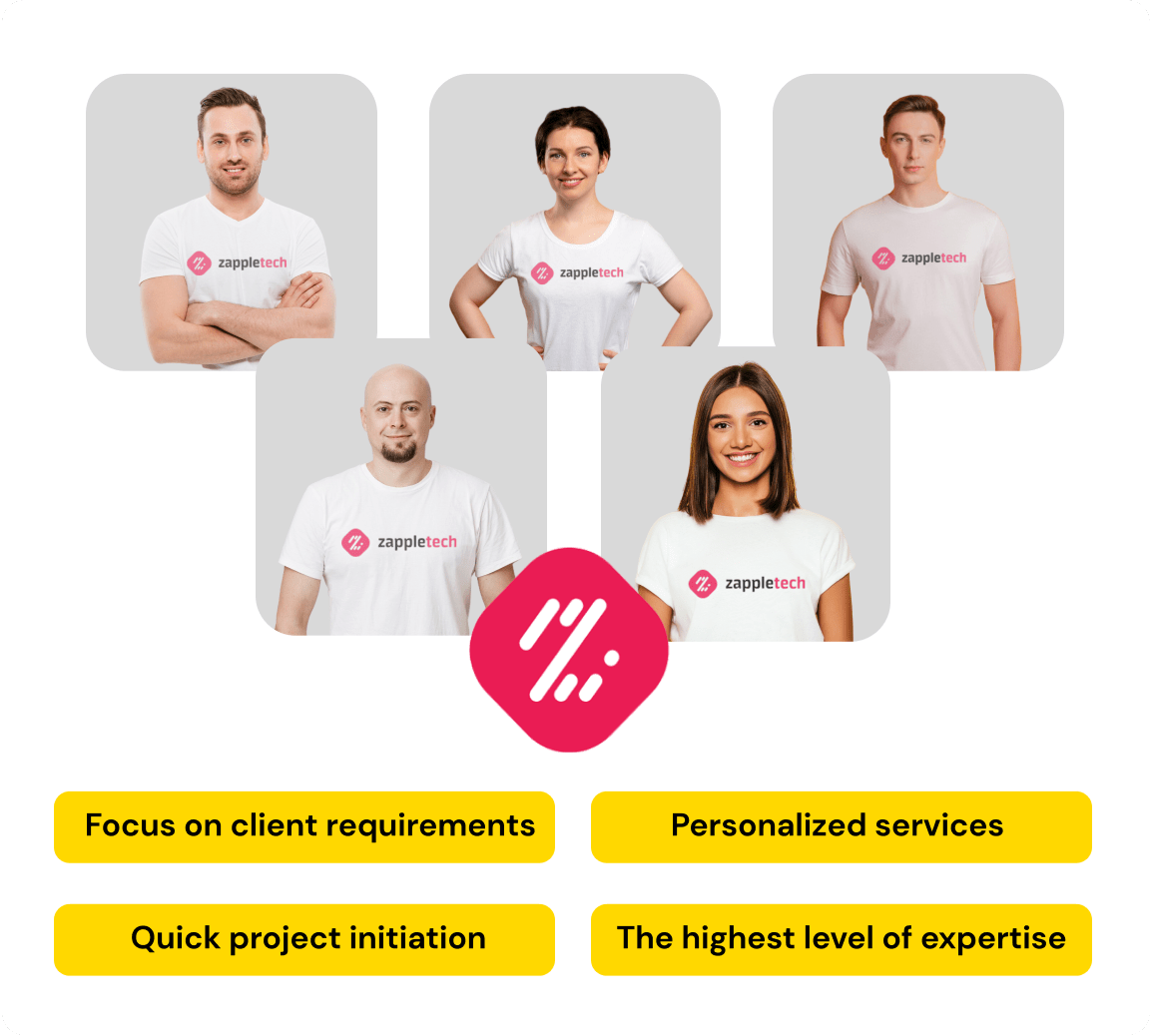Dedicated QA Team


Dedicated QA Team Is Perfect for You If
Advantages of Dedicated QA Team
Industries We Work With
What Our Customers Say
We Work With
Areas of testing
Platforms for testing
Types of testing
Dedicated Quality Assurance Team
Our Expertise

Our QA & Testing Team
Reasons to Work With Our Dedicated Team
Cooperation Types
Start Cooperation Now!

Why Should You Choose a Dedicated QA Team?
Ensuring the highest quality assurance (QA) standard is paramount. QA encompasses processes and methodologies to ensure software products function as intended, free from bugs and crashes.
Modern software development presents complex challenges. The solution to these challenges often lies in assembling a dedicated QA team. These teams comprise professionals solely focused on ensuring the quality and functionality of software products, rather than sharing QA responsibilities among various roles.
Therefore, this article delves into the significance of hiring a QA team, which is critical in identifying discrepancies in software product functionality. We will explore the roles, advantages, challenges, and best practices associated with these teams, highlighting their pivotal contribution to successful software development.
Understanding Quality Assurance
Quality assurance is the most critical aspect of software development because it consists of several mechanisms to prevent defects and adhere to quality standards.
In this setting, a QA team evolved as the solution capable of dealing with the complexities of modern quality assurance in IT projects.
The central thesis of this article is clear: A specialized QA team, unwavering in its function of delivering flawlessly functioning computer software products, is not just important but strategically crucial to quality assurance endeavors. It serves as a vital link within development cycles, underscoring the necessity of its presence.
In our upcoming analysis, we will survey these grounds further by investigating the undercurrents of QA team’s dedication, their roles and empowerment, advantages and disadvantages, and ideal ways of implementing and managing them.
Definition and Composition of a Dedicated QA Team
A Dedicated team is a group of experts who work closely with the development team to monitor and control software product quality, reliability, and functionality. Finally, the QA team is usually made up of experienced professionals who are good at testing in all the ways you can think of. The team is often a group of QA engineers, testers, analysts, and even automation specialists.
The assembly of the QA team is done by bringing in individuals with many sophisticated skill sets and expertise in different areas of quality assurance processes. This includes manual and automated testing, regression testing, performance testing, and also testing of the user experience. A unique feature of a committed QA team is that it is a group of well-coordinated specialists with relatively complementary skills; they can tailor their skills to face the complex challenges of software quality assurance.
Responsibilities and Duties of QA Team Members
The responsibilities and duties of QA team members encompass a wide range of tasks to ensure the quality and functionality of software products. These may include:
- Designing thorough test plans considering the realities of tests and strategies to check out the application functions, performance, and easiness of use the software applications.
- Carrying out various testing activities, including manifold, integration, system testing, and acceptance tests to assign defects.
- Cooperating with developers and other parties to understand the needs, create test scenarios, and arrange the testing efforts.
- Devoting to utilizing automated testing tools and frameworks to put test procedures at ease and boost productivity.
- Analyzing test results and providing feedback to the engineering team working to identify and find solutions to the obstacles quickly.
We can maintain and perform our QA processes and methodologies through future planning and innovation that will increase efficiency and improve overall quality.
Importance of Having a Separate Team Solely Dedicated to QA Tasks
Focused Expertise | The creation of a separate QA department is synonymous with the introduction of qualified QA personnel who have sole access to a rigorous testing process without distractions from other organizational areas. |
Comprehensive Coverage | Having a QA team on board in the companies allows performing extensive test coverage with all aspects of product functions in mind and, as a result, releasing better and more stable software products. |
Early Defect Detection | A QA team dedicated to testing the software for bugs and problems throughout the development process can identify and report bugs as soon as possible; better still, those issues would be resolved before they grow. This will minimize the effects midway or even late in the process. |
Improved Product Quality | A devoted QA team forms the key pillar in developing software products that meet or exceed clients’ expectations. It performs its duty at each stage of the development process to check and ensure compliance with defined quality standards and implement the recommended practices. |
Ultimately, the main reason for creating a team specifically aimed at QA tasks is the possibility that this team could provide special skills and experience only related to testing. This would allow for an almost full spectrum of tests, early defect detection, and improving product quality, which are the bases for the success of software development projects.
Advantages of Having a Dedicated QA Team
- Enhanced Product Performance and Unit Workmanship
The dedicated QA (Quality Assurance) teams guarantee high standards and prevent bugs across software versions by troubleshooting early bugs. These professionals combine their specific experience with highly zealous actions that often result in unbeatable products and exceed user expectations.
- Improved Accuracy for Bugs and Their Corrections
The QA specialists with the skill to search and fix the bugs use strict testing for different software versions and the help of automation tools. Advanced focus on a comprehensive approach also means any prior problems can be handled in advance, and resources invested in them can be capitalized. This is a big time-saver for the future.
- To Enhance Client Satisfaction and Create Brand Loyalty
Software of high quality, providing sufficient consistency with users’ expectations, enhances user satisfaction and determines their loyalty. When the customer experiences near-perfect products and services, which play to their satisfaction, there is a positive effect on attachment, loyalty, and trust, resulting in less churn and increased positive word-of-mouth reviews.
- Because crises, such as pandemics, often can lead to slowdowns in economic activity in the short-run, adaptation to these situations doesn’t last for just a moment
Allocating QA sources at the initial stage saves money as costly errors are eliminated. This also reduces maintenance expenses. Addressing the issues early in the development process allows organizations not to spend extra money procuring post-release solutions, ensuring that the overall software development project is completed cheaply.
Best Practices for Building and Managing a QA Team
1. Setting Clear Goals and Expectations
The maintenance of a dedicated QA team, which is responsible for quality management, starts with goal setting and expectation setting. Companies should craft a clearly defined objective for QA specialists, among which position improvement, defects reduction, and customer satisfaction are examples. Convenient and well-articulated communication of these goals gives everyone in the team the information to enable them to understand their responsibilities and align themselves to the organization’s overall objectives.
Recruiting a QA team should be done to define the organization’s expectations regarding potential staff features such as skill sets, experience levels, and performance metrics. Setting open and direct aims and standards of success is a key aspect for all organizations, for they can have a team of the best talents who agonize over the same set of goals and objectives.
2. Providing Ongoing Training and Professional Development Opportunities
Continuous training and professional development are essential for keeping a dedicated QA team skilled and up-to-date with the latest tools, technologies, and best practices. Organizations should invest in training programs, workshops, and certifications to enhance the expertise of QA professionals and ensure they remain at the forefront of industry trends.
Additionally, organizations should encourage knowledge sharing and peer learning within the QA team. Organizations can empower QA professionals to expand their skill sets, stay motivated, and deliver high-quality results by fostering a continuous learning and improvement culture.
3. Implementing Robust QA Processes and Methodologies
The systematic QA processes and methodologies in place will strongly support an effective and productive dedicated Team. Institutions must grasp standard processes in test planning, execution, and reporting to achieve repeatability, reliability, and project automation.
Furthermore, firms need to go beyond assignments and implement trendy QA strategies like Agile or DevOps to ensure agility in software development while testing. Organizations can achieve that by aligning QA activities with the development lifecycle, which helps shorten market launch time, enhance collaboration between teams, and develop more quality software products.
By hiring a QA team with experience with QA methodologies and tools relevant to the application, organizations can be confident that they have the skills set to do a good job. Forming a team that consists of specialists with different expertise and knowledge, not only on QA techniques, allows organizations to adjust to the specific requirements of each project.
4. Encouraging Collaboration and Communication Within the Team
The key to creating a productive and friendly work atmosphere inside the QA group is the interaction and communication between the team specialists. Organizations must establish open communication channels, periodic team meetings, and utilize collaborative tools to support the flow of knowledge and problem-solving regimes among the groups.
The QA internally in the organizations also needs to promote cross-functional collaboration between quality assurance, software developers, product managers, and other key stakeholders. Involving QA team members in early project discussions becomes proactive for QA decision-makers; these discussions and decision-making processes will make certain that quality concerns are spread out all throughout the development cycle.
In addition, the team should have a culture of trust and respect, where engineers are encouraged to freely share ideas, propose needs, and implement system features. Happier and stimulated employees will be the most efficient when the QA staff is in a conducive working atmosphere, so organizations would maximize the output from their QA team.
In conclusion, the significance of a dedicated QA team in ensuring flawless functionality within software products cannot be overstated. Throughout this article, we’ve explored how team dedication plays a pivotal role in upholding quality standards, detecting and resolving issues, and ultimately delivering reliable and high-performing software products. By leveraging their specialized expertise, rigorous testing methodologies, and focus on quality assurance, dedicated teams contribute to the overall success of software development projects.
As organizations navigate the complexities of modern software development, it’s essential to prioritize investing in QA resources, including hiring dedicated teams. By recognizing the value that the dedication of QA teams brings to the table, organizations can enhance their ability to deliver products that meet the needs and expectations of their users. Investing in QA upfront improves product quality and reliability, leading to long-term cost savings and increased customer satisfaction. Therefore, I urge organizations to allocate adequate resources and support to their QA teams, ensuring they have the tools, training, and support needed to succeed.
The future of quality assurance in software development holds immense promise, driven by dedicated QA teams’ dedication, innovation, and expertise. By embracing emerging technologies, best practices, and a culture of continuous improvement, organizations can position themselves for success in delivering high-quality software products that meet the demands of today’s fast-paced digital world.
Frequently Asked Questions:
What is a dedicated QA team?
A dedicated QA team is a group of quality assurance professionals focused on testing and ensuring the quality of your software or product throughout its development.
How does a dedicated QA team work with my existing team?
The QA team integrates with your existing staff to collaborate on testing processes, share feedback, and ensure that the product meets quality standards.
What are the benefits of hiring a dedicated QA team?
A dedicated QA team provides specialized expertise, continuous testing throughout development, and objective feedback to enhance product quality and efficiency.








